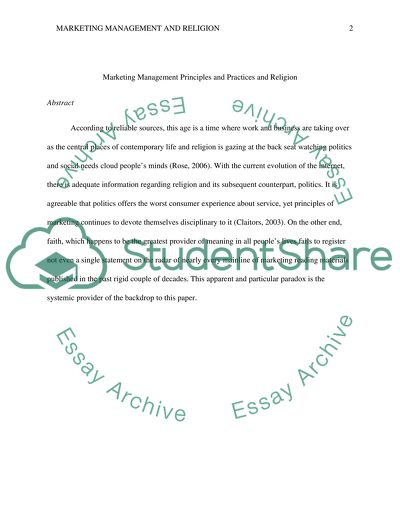Cite this document
(“Marketing Management Principles, Practices and Religion Essay”, n.d.)
Retrieved from https://studentshare.org/marketing/1398620-marketing-management-principles-practices-and-religion
Retrieved from https://studentshare.org/marketing/1398620-marketing-management-principles-practices-and-religion
(Marketing Management Principles, Practices and Religion Essay)
https://studentshare.org/marketing/1398620-marketing-management-principles-practices-and-religion.
https://studentshare.org/marketing/1398620-marketing-management-principles-practices-and-religion.
“Marketing Management Principles, Practices and Religion Essay”, n.d. https://studentshare.org/marketing/1398620-marketing-management-principles-practices-and-religion.


